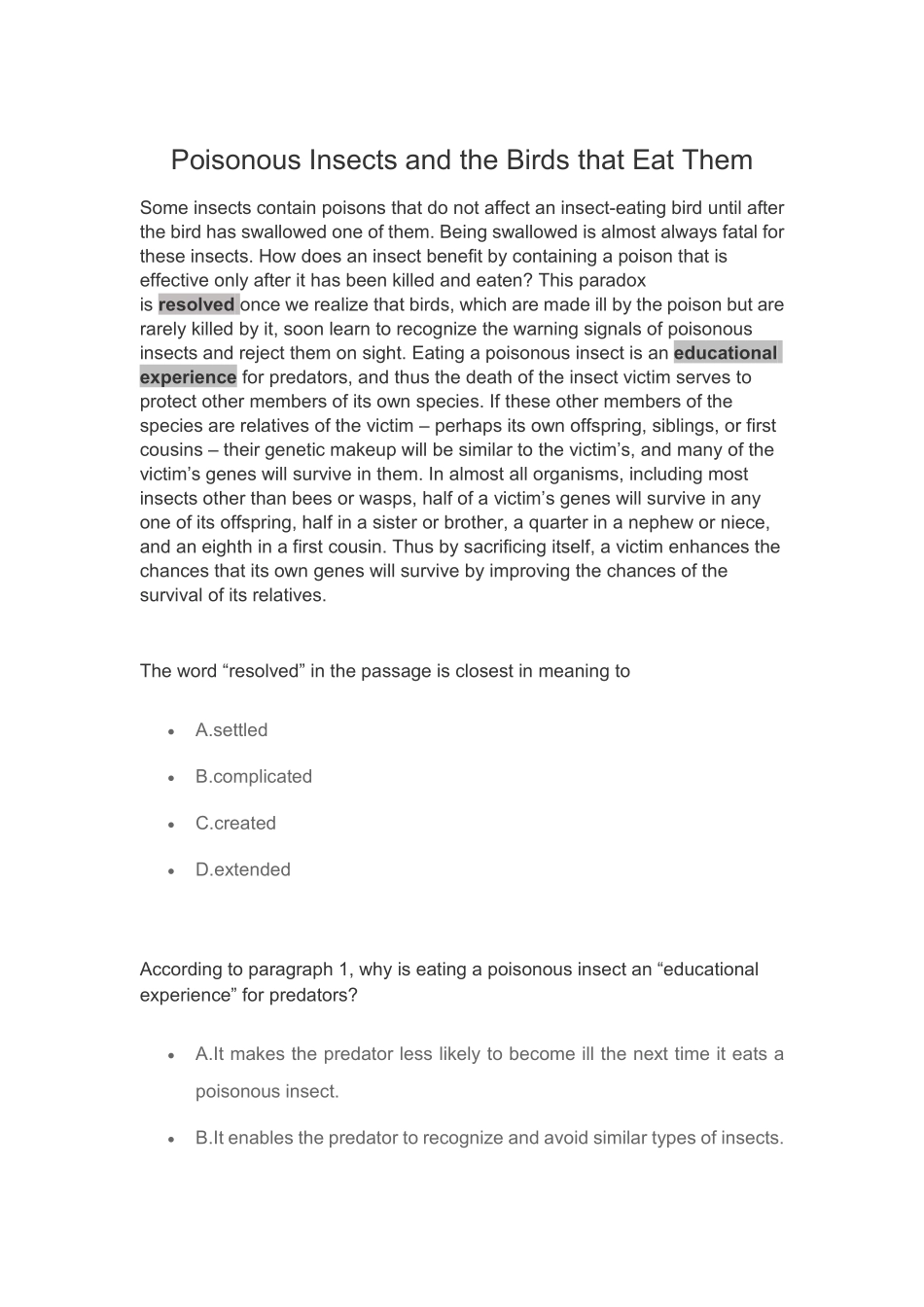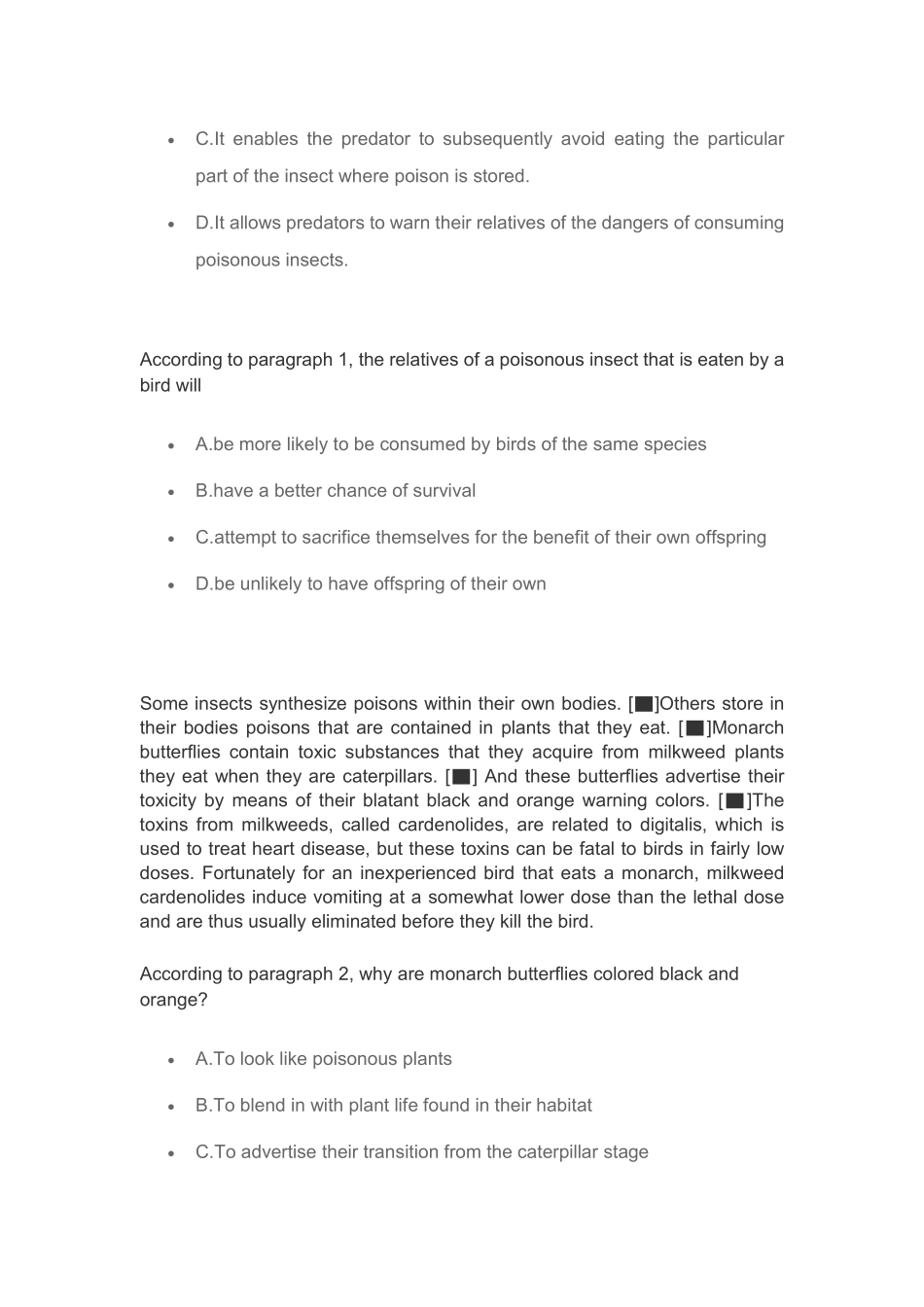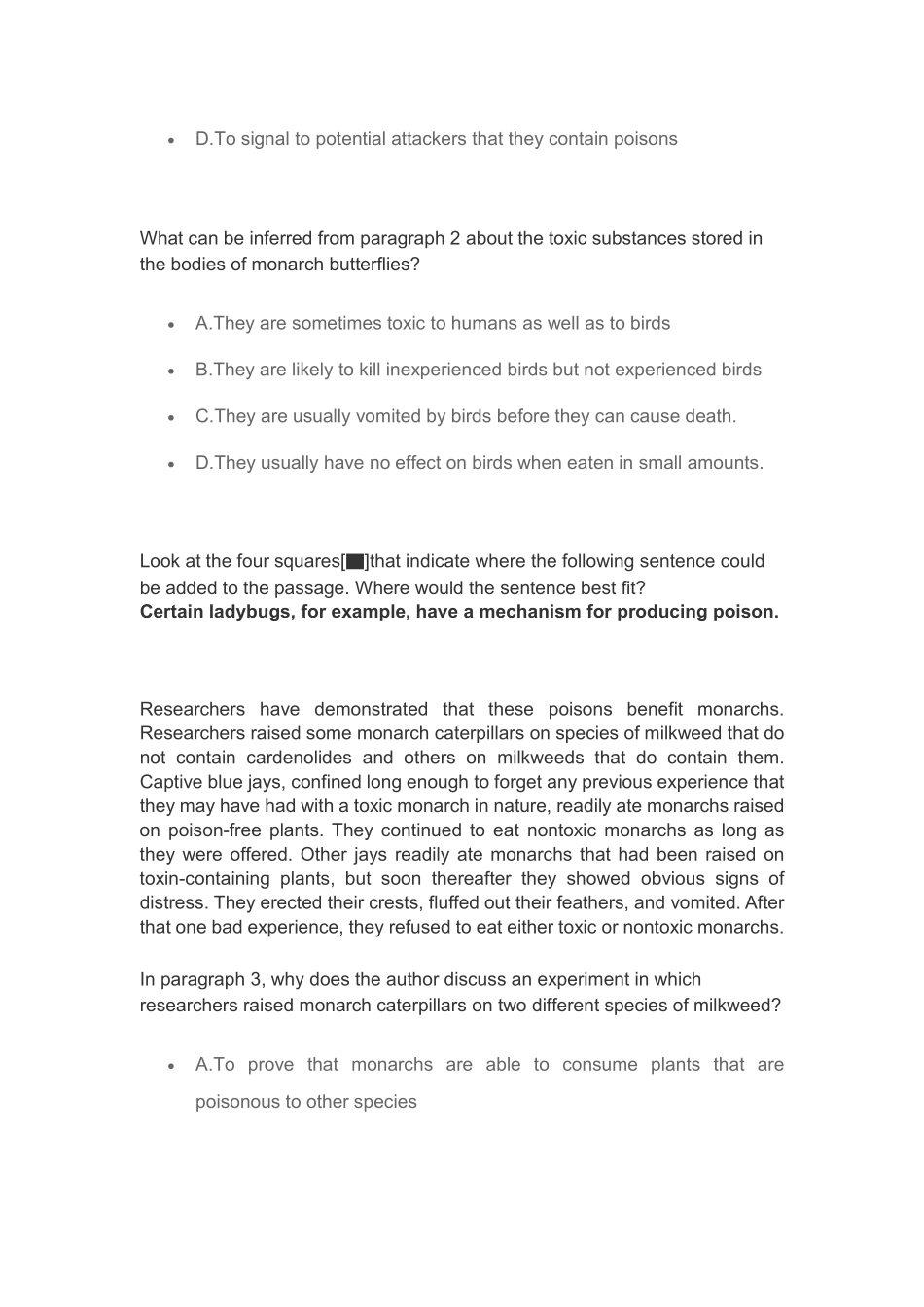Poisonous Insects and the Birds that Eat ThemSome insects contain poisons that do not affect an insect-eating bird until afterthe bird has swallowed one of them. Being swallowed is almost always fatal forthese insects. How does an insect benefit by containing a poison that iseffective only after it has been killed and eaten? This paradoxis resolved once we realize that birds, which are made ill by the poison but arerarely killed by it, soon learn to recognize the warning signals of poisonousinsects and reject them on sight. Eating a poisonous insect is an educationalexperience for predators, and thus the death of the insect victim serves toprotect other members of its own species. If these other members of thespecies are relatives of the victim – perhaps its own offspring, siblings, or firstcousins – their genetic makeup will be similar to the victim’s, and many of thevictim’s genes will survive in them. In almost all organisms, including mostinsects other than bees or wasps, half of a victim’s genes will survive in anyone of its offspring, half in a sister or brother, a quarter in a nephew or niece,and an eighth in a first cousin. Thus by sacrificing itself, a victim enhances thechances that its own genes will survive by improving the chances of thesurvival of its relatives.The word “resolved” in the passage is closest in meaning toA.settledB.complicatedC.createdD.extendedAccording to paragraph 1, why is eating a poisonous insect an “educationalexperience” for predators?A.It makes the predator less likely to become ill the next time it eats apoisonous insect.B.It enables the predator to recognize and avoid similar types of insects.C.It enables the predator to subsequently avoid eating the particularpart of the insect where poison is stored.D.It allows predators to warn their relatives of the dangers of consumingpoisonous insects.According to paragraph 1, the relatives of a poisonous insect that is eaten by abird willA.be more likely to be consumed by birds of the same speciesB.have a better chance of survivalC.attempt to sacrifice themselves for the benefit of their own offspringD.be unlikely to have offspring of their ownSome insects synthesize poisons within their own bodies. [▇]Others store intheir bodies poisons that are contained in plants that they eat. [▇]Monarchbutterflies contain toxic substances that they acquire from milkweed plantsthey eat when they are caterpillars. [▇] And these butterflies advertise theirtoxicity by means of their blatant black and orange warning colors. [▇]Thetoxins from milkweeds, called cardenolides, are related to digitalis, which isused to treat heart disease, but these toxins can be fatal to birds in fairly lowdoses. Fortunately for an inexperienced bird that eats a monarch, milkweedcardenolides induce vomiting at a somewhat lower dose than the lethal doseand are t...


